Found 91 Results
Page 8 of 12

Building Bridges – Women’s History Month – Part 2
Podcast | March 31, 2021
In this episode of Building Bridges we look at some additional remarkable women in American history: Lucy Parsons, Margaret Chase Smith, and Donna Brazile.
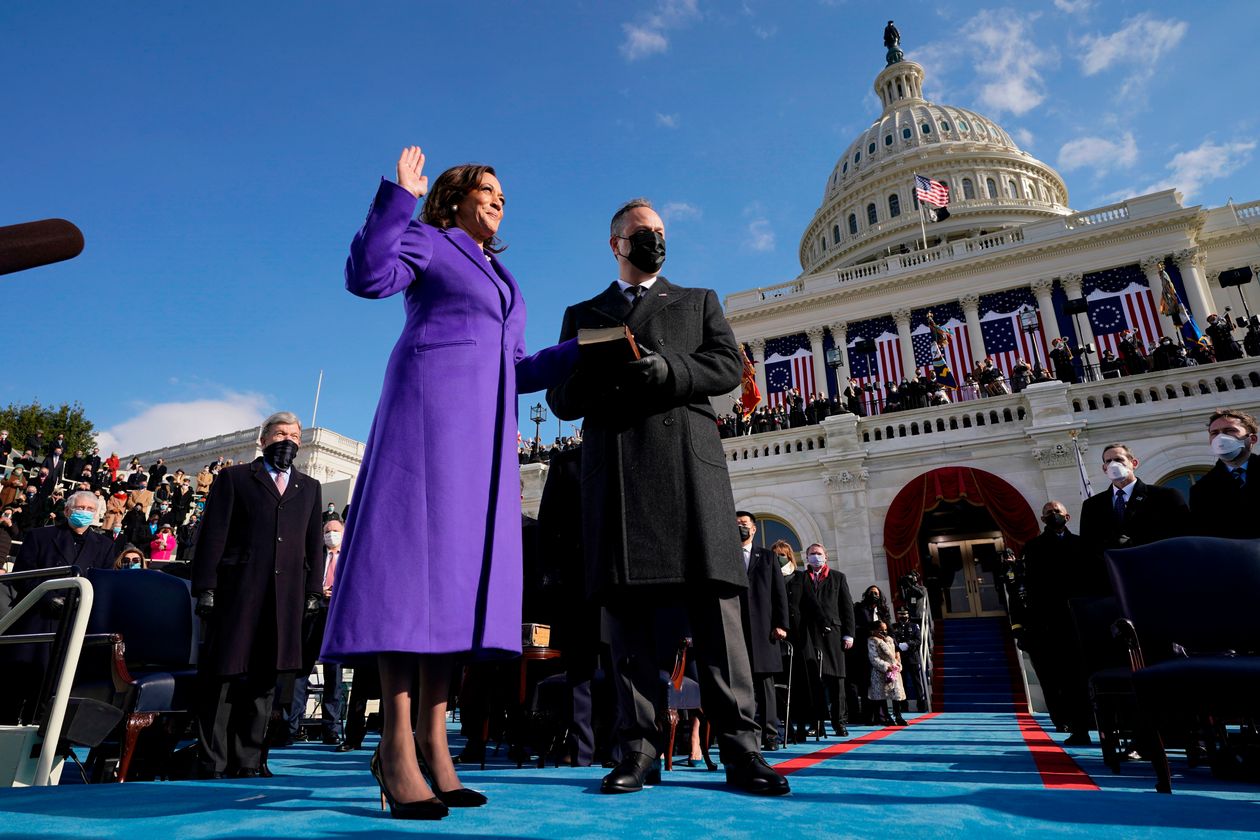
- Civil Rights & Individual Liberties
- Equality
- Executive Branch
- Government & Elections
- Legislative Branch
Women: A Majority in the United States, A Minority in U.S. Government
Post | March 29, 2021
The year 2021 has already been a ground-breaking one for women in national politics. Vice President Kamala Harris became the first woman and person of color to hold the office, the 117th Congress includes the largest number of female members in U.S. history, and President Joe Biden’s cabinet will ultimately include 11 women, setting a […]
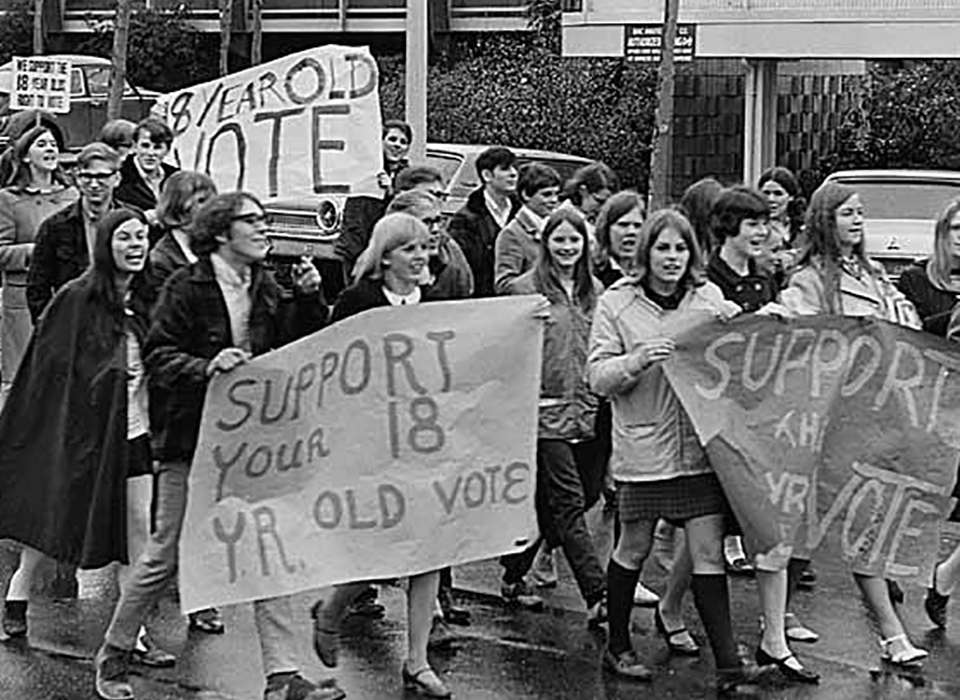
- Civil Rights & Individual Liberties
- Constitutional Issues
- Government & Elections
- Political Science
- US History
The 50th Anniversary of the 26th Amendment
Post | March 22, 2021
Congress passed the 26th Amendment in March 1971; it was ratified by the states and signed by President Richard Nixon by July of that same year.1 The amendment lowered the voting age to 18. It reads: Section 1 The right of citizens of the United States, who are eighteen years of age or older, to […]
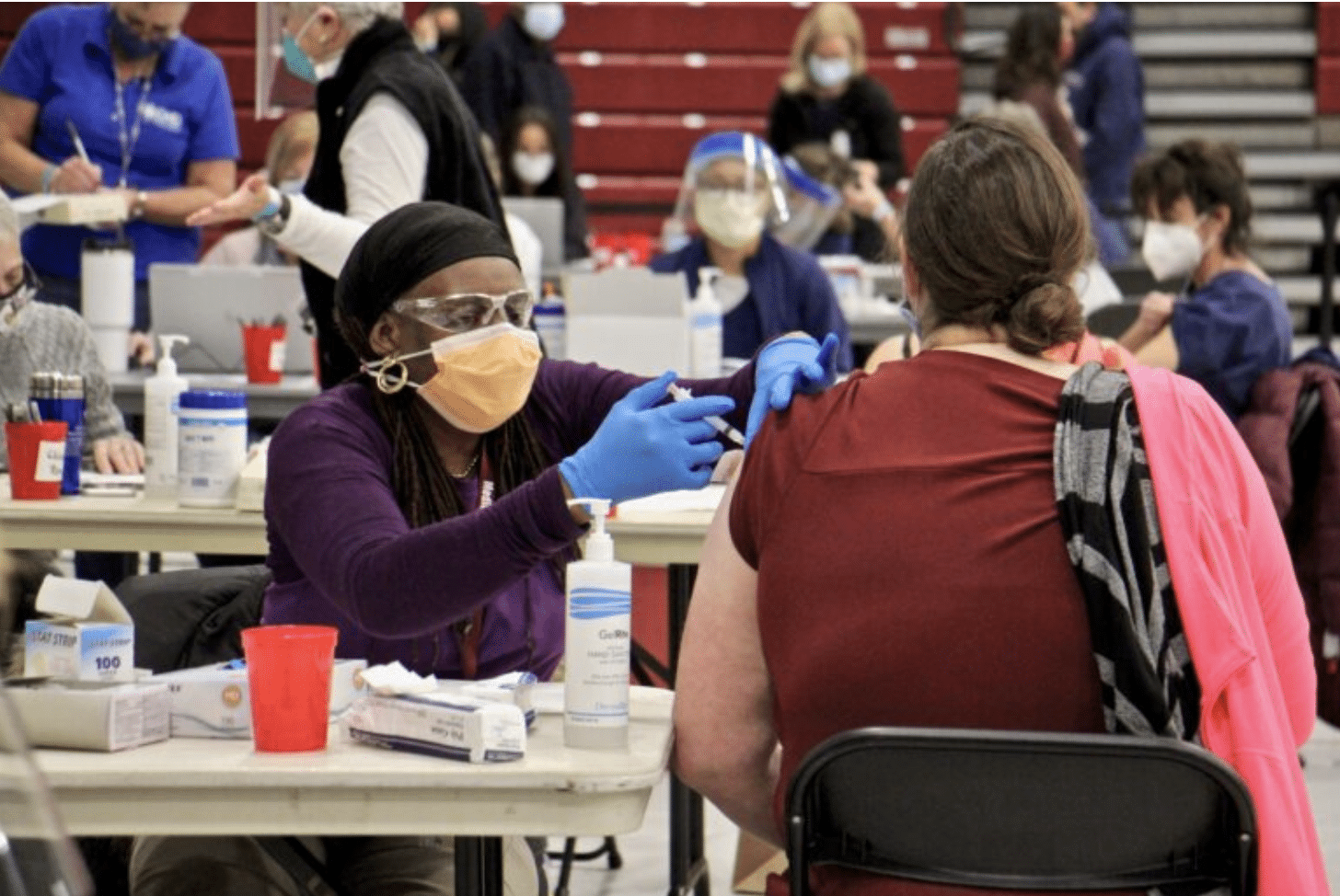
- Civil Rights & Individual Liberties
- COVID-19
- Education
- Health Care
- Partisanship & Polarization
- Social Issues
How Can We Overcome Vaccine Skepticism?
Post | March 16, 2021
There’s been a lot of good news in the fight against COVID-19. The United States has authorized three vaccines for emergency use and drastically ramped up the distribution to states while increasing the administration of doses.1 More than 107 million shots have already been given, with an average of 2.3 million per day.2 President Joe […]
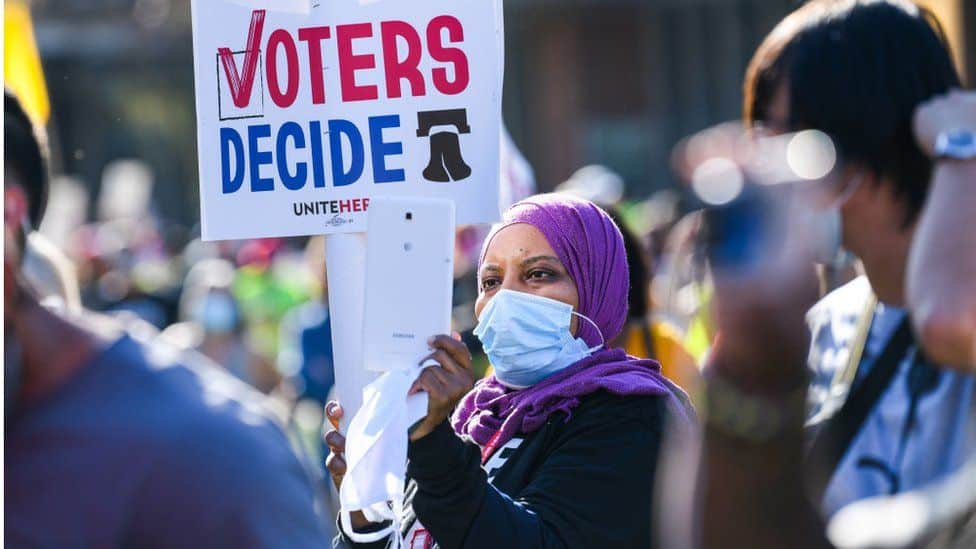
- Civil Rights & Individual Liberties
- Equality
- Government & Elections
- Legislative Branch
- Partisanship & Polarization
Restoring Confidence or Destroying Democracy? The Fight Over Access to the Ballot
Post | March 8, 2021
The past several election cycles have seen high-stakes fights over access to the ballot and the rules that govern elections. In 2013, the Supreme Court invalidated provisions of the Voting Rights Act, thus making it easier for states to change their voting laws.1 In the years since, conservatives in Congress and in state legislatures have […]
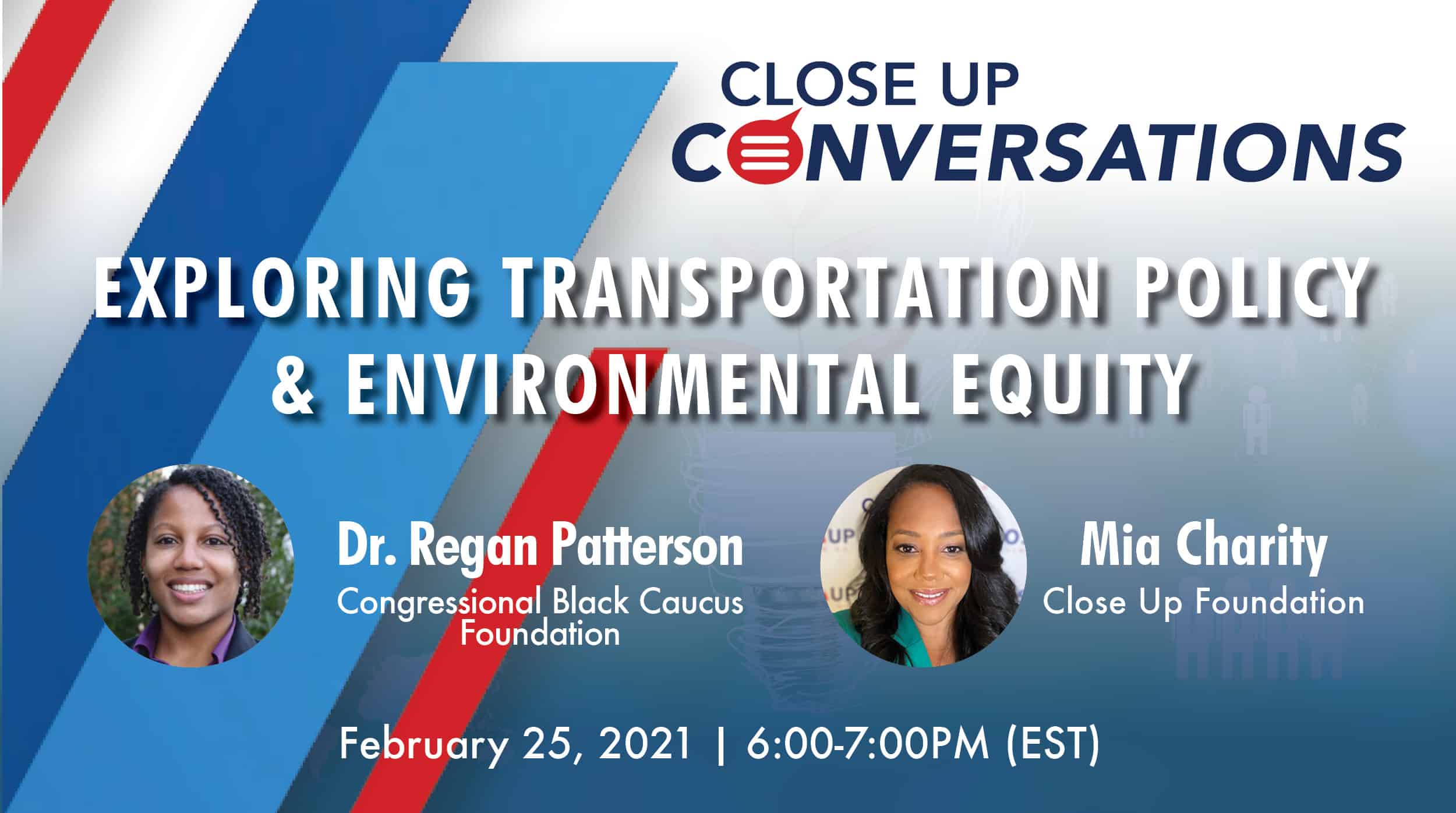
Exploring Transportation Policy & Environmental Equity
Videos | February 26, 2021
During this Close Up Conversations webinar, Close Up’s, Mia Charity, discusses environmental justice issues with Dr. Regan F. Patterson of the Congressional Black Caucus Foundation.
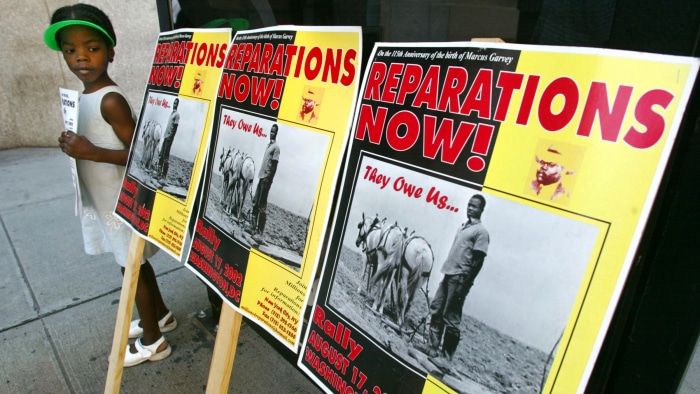
- Civil Rights & Individual Liberties
- Constitutional Issues
- Economic Issues
- Energy & Environment
- Equality
- Executive Branch
- Government & Elections
- Legislative Branch
- Social Issues
- US History
156 Years and Counting: Reparations for Slavery in 2021
Post | February 24, 2021
In the wake of this past summer’s demonstrations and civil unrest spurred by accusations of wrongful police killings and systemic racism, Congress is considering legislation regarding reparations for Black Americans who are descended from enslaved people. The bill, H.R. 40: Commission to Study and Develop Reparation Proposals for African Americans Act, was introduced by Representative […]
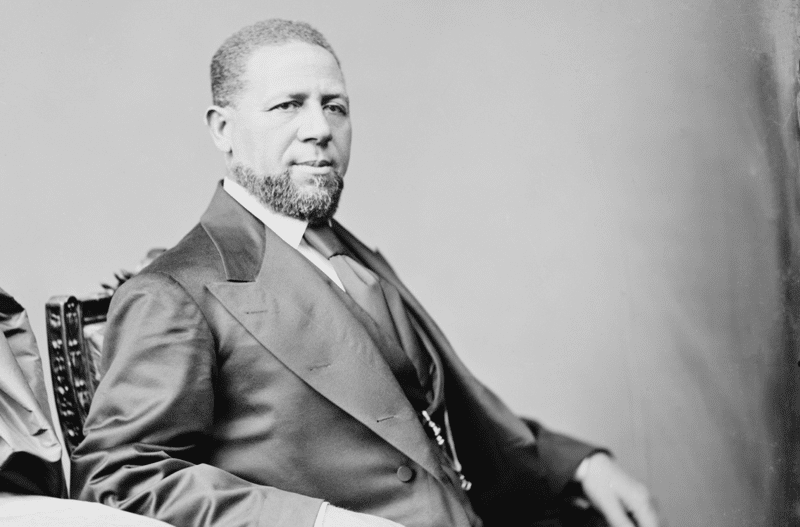
- Civil Rights & Individual Liberties
- Constitutional Issues
- Executive Branch
- Government & Elections
- Legislative Branch
- Partisanship & Polarization
- US History
The 14th: Why A Reconstruction-Era Amendment is in the News
Post | February 23, 2021
Now that former President Donald Trump’s second impeachment trial has concluded with another acquittal, some lawmakers and voters remain unsatisfied with the results.1 Had President Trump been found guilty by the Senate, he would have been barred from holding federal office again in the future. With an acquittal, President Trump remains eligible to run once […]
Page 8 of 12
Page 8 of 12

Building Bridges – Women’s History Month – Part 2
Podcast | March 31, 2021
In this episode of Building Bridges we look at some additional remarkable women in American history: Lucy Parsons, Margaret Chase Smith, and Donna Brazile.

- Civil Rights & Individual Liberties
- Equality
- Executive Branch
- Government & Elections
- Legislative Branch
Women: A Majority in the United States, A Minority in U.S. Government
Post | March 29, 2021
The year 2021 has already been a ground-breaking one for women in national politics. Vice President Kamala Harris became the first woman and person of color to hold the office, the 117th Congress includes the largest number of female members in U.S. history, and President Joe Biden’s cabinet will ultimately include 11 women, setting a […]

- Civil Rights & Individual Liberties
- Constitutional Issues
- Government & Elections
- Political Science
- US History
The 50th Anniversary of the 26th Amendment
Post | March 22, 2021
Congress passed the 26th Amendment in March 1971; it was ratified by the states and signed by President Richard Nixon by July of that same year.1 The amendment lowered the voting age to 18. It reads: Section 1 The right of citizens of the United States, who are eighteen years of age or older, to […]

- Civil Rights & Individual Liberties
- COVID-19
- Education
- Health Care
- Partisanship & Polarization
- Social Issues
How Can We Overcome Vaccine Skepticism?
Post | March 16, 2021
There’s been a lot of good news in the fight against COVID-19. The United States has authorized three vaccines for emergency use and drastically ramped up the distribution to states while increasing the administration of doses.1 More than 107 million shots have already been given, with an average of 2.3 million per day.2 President Joe […]

- Civil Rights & Individual Liberties
- Equality
- Government & Elections
- Legislative Branch
- Partisanship & Polarization
Restoring Confidence or Destroying Democracy? The Fight Over Access to the Ballot
Post | March 8, 2021
The past several election cycles have seen high-stakes fights over access to the ballot and the rules that govern elections. In 2013, the Supreme Court invalidated provisions of the Voting Rights Act, thus making it easier for states to change their voting laws.1 In the years since, conservatives in Congress and in state legislatures have […]

Exploring Transportation Policy & Environmental Equity
Videos | February 26, 2021
During this Close Up Conversations webinar, Close Up’s, Mia Charity, discusses environmental justice issues with Dr. Regan F. Patterson of the Congressional Black Caucus Foundation.

- Civil Rights & Individual Liberties
- Constitutional Issues
- Economic Issues
- Energy & Environment
- Equality
- Executive Branch
- Government & Elections
- Legislative Branch
- Social Issues
- US History
156 Years and Counting: Reparations for Slavery in 2021
Post | February 24, 2021
In the wake of this past summer’s demonstrations and civil unrest spurred by accusations of wrongful police killings and systemic racism, Congress is considering legislation regarding reparations for Black Americans who are descended from enslaved people. The bill, H.R. 40: Commission to Study and Develop Reparation Proposals for African Americans Act, was introduced by Representative […]

- Civil Rights & Individual Liberties
- Constitutional Issues
- Executive Branch
- Government & Elections
- Legislative Branch
- Partisanship & Polarization
- US History
The 14th: Why A Reconstruction-Era Amendment is in the News
Post | February 23, 2021
Now that former President Donald Trump’s second impeachment trial has concluded with another acquittal, some lawmakers and voters remain unsatisfied with the results.1 Had President Trump been found guilty by the Senate, he would have been barred from holding federal office again in the future. With an acquittal, President Trump remains eligible to run once […]
Page 8 of 12







